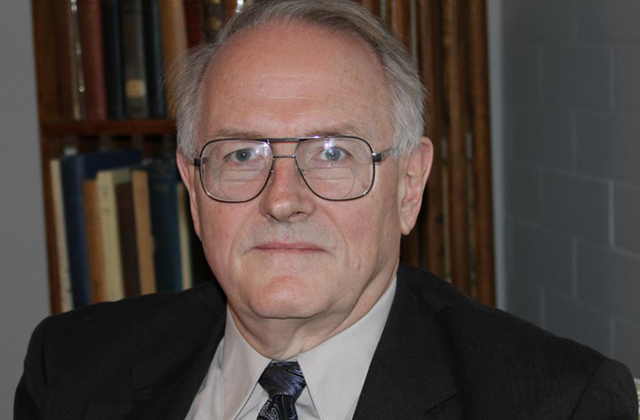Armenia or Azerbaijan should Resolve: Paul A.Goble

Columnist Paul A.Goble, special adviser on Soviet nationality issues and Baltic affairs to Secretary of State, editor of numerous volumes on ethnic issues in the former Soviet Union, currently Professor at the Institute of World Politics, is the interviewee of 168.am.
-Mr Goble, recently head of the Director of National Intelligence of the USA stated on possibility of Nagorno-Karabakh conflict sharpening in 2016, then NATO Secretary General called for vigilance of the conflicting parties when Azerbaijan’s authorities apply rather strong and combative rhetoric both on OSCE Minsk group and Armenia, and Russia-Turkey issue in the region is becoming more and more intensive around Syria. Do you see intensification of sharpening in Karabakh issue?
All the developments mentioned by you are quite bothering, and, as the situation seems explosive in all those poles, which softens conflict resolution for one party on other conflicting zones. From this viewpoint, situation in the South Caucasus is really vulnerable. However, as I already mentioned, I consider, the biggest threat in NKR conflict zone today is economic and political condition in Azerbaijan. I repeatedly insisted, that conflict isn’t settled, as it’s also a tool for solving domestic issues for the authorities of conflicting parties. In this case, Azerbaijan needs this tool, as situation is very vulnerable inside the country; simultaneously a few problems have emerged.
Accordingly, the most serious threat to peace in the southern Caucasus now is the anti-government protests in Azerbaijan. If these get worse, it is entirely possible that Baku might launch a new attack on Armenian forces as a way of distracting public attention from economic problems by mobilizing people on the basis of patriotic feelings. The other issues you mention are worrisome but not nearly as threatening to stability, at least in the short term.
It’s a positive shift, when attitude towards the conflict rises, as an additional view is positively reflected on intentions of the parties, and absence of it pushes to unwanted actions. Under supplementary attention, I’m sure, that wide-scale military actions will be less possible. I’m also sure, that, however, meetings are useful, as dialogue changes many issues.
–-OSCE Minsk Group looks forward to working closely with the German chairman-in-office in 2016 on resolving the Armenian-Azerbaijani Nagorno-Karabakh conflict. What do you expect from Germany and from the next year for NK conflict settlement?
OSCE Minsk group isn’t close to conflict resolution due to a crucial external reason as well, however, diplomats are attached to the group, duty of which is always expressing optimism. Not being one, I take a more jaundiced view of the prospects for a settlement in the Karabakh dispute. The international community as expressed in the OSCE Minsk Group wants to balance between two principles—territorial integrity and the right of nations to self-determination. The problem is that these principles are conflicting in this case. My view is that the conflict will last long until one of the two things happens: either Azerbaijan decides that it would not want to deal with the problems, it would have both internally and from international supervision by retaking its lands; or Armenia decides that its economic plight is so bad that it cannot continue to have closed borders on all sides. The tragedy is that each could decide that but not necessarily agree on a settlement. As for Iran’s ambitions, everyone will take them into account. I think, issue of Iran’s participation in negotiations will be resolved in favor of Iran. However, at the moment it’s difficult to say what format may be applied. However, I’m loyal to the opinion, that NKR conflict may be resolved exclusively by negotiations between the parties.
-Russia, that is currently busy with complicated negotiations with Turkey in Syria, what do you think what’s its role in this conflict?
I consider the same role, as it used to assume. Russia attempts to maintain conflict under its geo-political interests, and not for Azerbaijan and Armenia. At a proper moment Russia will betray any of the parties, as Ukrainian conflict showed. Today simply Russia won’t improve ties with Azerbaijan out of Russia-Turkey relations. In any case it’ll occur, implications of which, I consider will be apparent.
-In this case which will be the response of the USA?
The USA doesn’t appear with its total potential. It has its objective reasons. In the past, processes tended to peace initiated by the USA in the region have been collapsed by a country with quite big potential. Presence of the USA in the South Caucasus may be more. However, let me mention, that the USA is for peaceful settlement of NKR issue and it has undertaken active steps in this direction.
13.02.2016
By Araks Martirosyan

























